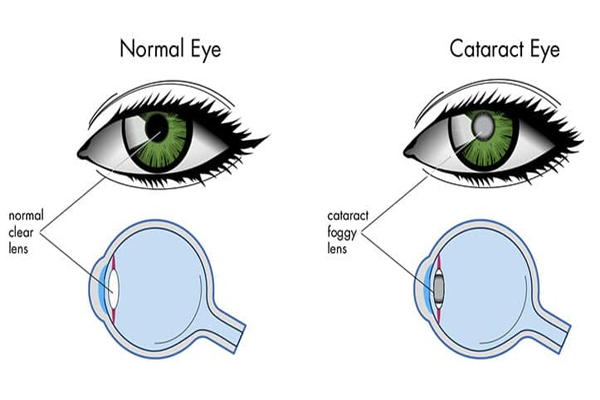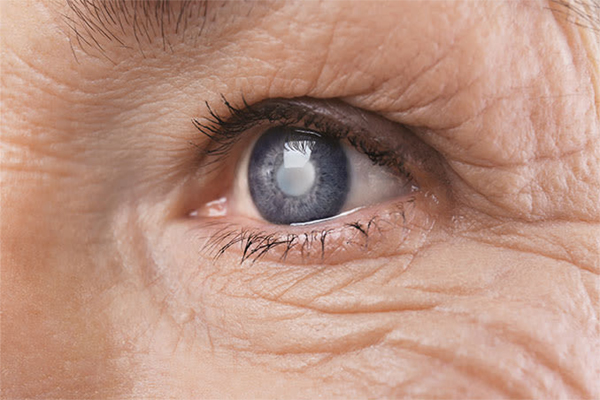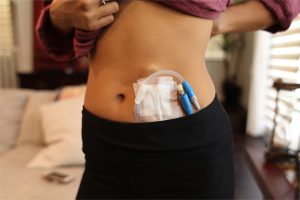Table of Contents
Cataract surgery is one of the most prevalent eye procedures performed in several nations, including Iran. Cataract surgery is also one of the most successful eye operations for recovering a patient’s eyesight. Even though cataracts are a leading cause of blindness, they can be corrected with a straightforward outpatient procedure to restore eyesight. Continue reading The Amitis Health Tourism Company for more information about cataract surgery processes and pre-and postoperative instructions.

Cataract Pre-Operative Instructions
Avoid eating and drinking the night before cataract surgery and eat a light meal. Digestion takes many hours and delays surgery. Drinking coffee, tea, and water are also prohibited after midnight. During surgery, when you are unconscious, your stomach should be empty to prevent possible complications. Heart, blood pressure, and seizure medications should be taken with a sip of water on the morning of the surgery. Take other medicines, such as insulin, and take them with you. Ask your doctor if you are unsure what medications to take before surgery.
Cataract Postoperative Instructions
Cataract surgery usually does not take more than ten minutes. For this reason, it is considered outpatient surgery. After cataract surgery, you are transferred to the recovery unit, where you usually have to rest for 30 minutes to an hour to eliminate the numbing or soothing effect. A protective shield is placed on the eyes to prevent eye rubbing and impact in this section. It would help if you did not drive immediately after cataract surgery. Therefore, before being discharged from the hospital, arrange for someone to take you home. Talk to your doctor about possible complications and postoperative care in the next consultation.
6 Tips for Fast Recovery After Cataract Surgery
This article from Moj Aramesh Amitis Health Tourism Company will discuss six tips for faster recovery after cataract surgery.
Avoid intense light
One precaution is not to be exposed to intense lights such as TV, smartphones, tablets, laptops, etc., for at least the first 24 hours after cataract surgery. If you use fluorescent lights for home lighting, try keeping them off and using dim light bulbs. Keep in mind that during the healing process, you need to relax and stay as calm as possible and rest on your eyes.
Watch out for the eyes while bathing!
You can take a bath during the recovery period after cataract surgery, but be extra cautious. Do not soak your face with soap or water, and avoid doing so until one week after cataract surgery. Because your eyes have open sores, they are vulnerable to infection for up to a week. Therefore, washing the face with soap or other detergents can lead to eye infections and complications. To clean the face, you can use a wet towel for a week after surgery to prevent contamination from entering the eyes.
Avoid Driving
You should not drive immediately after surgery, and you should not do so for up to 4 days after the surgery. After seeing your doctor, they can adjust the exact driving time, depending on your circumstances. Wear sunglasses all the way when you are allowed to drive. Also, when you are outdoors, you should not forget to wear glasses while recovering.
Taking Care of the Eyes
Immediately after surgery, the eyes are covered with a transparent shield to protect their eyes from rubbing, contamination and impact. When you are at home, you can remove the bodyguard for a few hours, but for 4 to 5 days after surgery, you should use it while sleeping and resting. After removing the shielding from the eye, you may have blurred vision for a few minutes, which is perfectly normal.
Don’t forget the clinical visit!
An essential part of your recovery depends on regular visits to your doctor. Because the medications you need are prescribed, you will be examined to check for recovery. The first appointment with your doctor is one day after the surgery to make sure the eye is in place and get medication to prevent eye infection. If you have questions or concerns about your recovery, you can talk to your doctor.
Follow the doctor’s instructions.
You should follow your doctor’s advice and refrain from doing certain things in the recovery period.
These instructions include the following:
- Wear UV sunglasses when you are outdoors.
- Avoid strenuous exercise and lifting heavy objects for 3 to 4 weeks.
- Take antibiotics, and prescribed eye drops thoroughly to prevent eye infections. The use of eye drops may last for up to a month, depending on the amount of eye inflammation after surgery. Make sure you use eye drops as instructed by your doctor.
- Try to keep the house clean and dust-free for a few weeks after cataract surgery, and do not expose yourself to dust outside.
- Avoid rubbing and scratching the eyes severely not to damage their eyes.
- Avoid immersing your head underwater for at least a week after surgery.
- Do not wear makeup until a few weeks after surgery, especially eye makeup.
- See your doctor immediately in case of persistent pain, vision loss, sparks of eye light, nausea, and vomiting.
- Try not to bend immediately after surgery to put no extra pressure on the eyes.
- Do not walk in dim and dark places to avoid hitting doors and walls or falling.
- Be careful not to sneeze or vomit immediately after cataract surgery.
- Avoid swimming and using a hot tub in the first week after cataract surgery to prevent eye infections.
Remember that a large part of your recovery depends on observing these tips. Therefore, you should plan your daily activities and follow the instructions provided by your specialist. Because after cataract surgery, your eyes have open wounds that require special care for a few days after surgery.
How to use eye drops after cataract surgery
Wash your hands first, then tilt your head back and bend, and try to look up, then gently pull your lower eyelid down, and by pressing the eye drop, pour one or more drops into the eye as instructed. Do this so that the eye drop bottle does not hit the eyes. Then close your eyes and wipe off any excess eye drops. Discard the drop when the treatment is complete.
How to clean the eyes after cataract surgery?
Eye drops may become sticky and dirty around the eyes during use. But you can not wash your face for a week or two. Therefore, you should clean your eyes carefully. First, boil some water and let it cool. Wash your hands and gently clean around the eyes from the inner part of the eye to the outer corner with cotton or a clean bite that you dip into the water. Be cautious not to do this for the inside of the eye. Do not wash the eyes with water, and do not put pressure on the eyes.
Recovering from Cataract
Recovery after cataract surgery should be accident-free and short. However, this depends on following the doctor’s recommendations and attending the subsequent examination sessions with the doctor. If your anesthesia is through the skin above the eye, you may have to bruise in that skin area; These bruises disappear within a few days. Most patients have clear vision after cataract surgery. But this is different for people, and it may take one to two weeks for you to have a clear view.
Some people have a slight dry eye after surgery that should go away over time and in the process of healing. If you have a dry problem before cataract surgery, the dryness of the eye will increase during the healing process until it subsides. Complete recovery after cataract surgery should occur one month after surgery. The pain and discomfort after cataract surgery are minor. But you will be prescribed painkillers such as acetaminophen if you need to.

Concluding
Cataract surgery is one of Iran’s most straightforward and fastest operations, with a high success rate. Although this surgery is low risk, it involves several stages of recovery in which care must be taken. The benefits of cataract surgery in Iran affect the patient’s life. However, postoperative care is critical to benefit from these benefits, and ignoring these steps will lead to complications such as infection and a lot of time recovery.
Approximately 96% of people who did not have other eye diseases before cataract surgery had about 20 to 40% who did not have a corrected camera; They are not legally allowed to drive and do not need to wear glasses and contact lenses. About 90% of people with non-cataract eye disease are satisfied with the results of cataract surgery. Less than 2% of people with cataract surgery have life-threatening complications after surgery.
Still, people who have diseases such as diabetes and high blood pressure before cataract surgery are more likely to have serious surgical complications. Only threatening complications such as inflammation and eye infection occur in rare cases. For cataract surgery in Iran, you can communicate with skilled experts of Amitis Health Tourism Company and benefit from consulting services.
Also, to perform the whole cataract surgery process in Iran with the best price and the highest quality under the supervision of the best experts, you can benefit from the facilities of Amitis Health Tourism Company.




